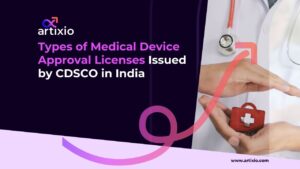In today’s globalized healthcare landscape, the importation of medical devices plays a crucial role in ensuring cutting-edge technologies and life-saving equipment reach healthcare professionals and patients. Thailand, with its rapidly advancing medical sector, offers a promising market for medical device importers. However, successfully navigating the importation process demands a thorough understanding of the regulatory framework established by the Thai Food and Drug Administration (FDA).
Medical Device Classification and Requirements in Thailand for Import
Before embarking on the journey of importing medical devices to Thailand, it’s essential to comprehend the classification categories established by the Thai Medical Device Act. The regulatory requirements vary based on the classification, which typically ranges from Class 1 to Class 4, with increasing complexity and risk associated with each class. These requirements encompass aspects such as quality standards, clinical data, and safety evaluations.
Preparing for Importation
Authorized Representative: Identify an authorized representative within Thailand. This representative serves as a vital link between the foreign manufacturer and the Thai FDA, facilitating communication and ensuring compliance with local regulations.
Local Presence: Establish a local presence and address in Thailand. All medical devices require a physical office within the country. In case the company doesn’t have a local presence, they can work with a Local Representative Company or Distributor.
Documentation and Technical Requirements:
- Gather comprehensive technical documentation, including design, manufacturing details, and safety information.
- Utilize the Global Medical Device Nomenclature (GMDN) system for traceability and patient safety.
- Adhere to labeling and packaging regulations set by the Thai FDA.
Application Process
Submit an Importation Application:
Facilitate this process through the authorized representative.
Provide detailed device specifications, clinical evidence, and labeling information.
Quality system inspection may be required, especially for specific devices.
Review and Approval:
The Thai FDA conducts rigorous reviews for safety, effectiveness, and compliance.
Additional information or clarifications may be requested for comprehensive evaluation.
The review timeline varies based on device complexity and submitted documentation.
FDA Registration Certificate:
Successful review results in the issuance of an FDA registration certificate.
This certificate signifies compliance and allows lawful importation and distribution.
It is a critical document highlighting regulatory approval and legitimacy.
Compliance and Post-Importation
Maintain Adherence to Thai FDA Standards:
Ensure compliance with labeling and packaging requirements.
Regularly update labeling as needed.
Post-Market Surveillance:
Establish robust post-market surveillance for device performance and safety.
Promptly address any potential safety concerns based on user feedback.
In conclusion, importing medical devices to Thailand requires meticulous planning, adherence to regulations, and collaboration with local experts. Artixio can help you plan, prepare and execute the importation of medical devices in Thailand. Artixio can also support as your Legal Authorized Representative / License Holder in the region through its local affiliate.





